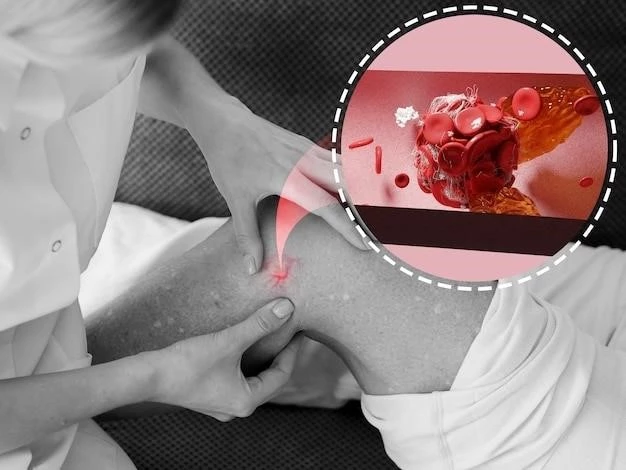Introduction to Renoanogenital Syndrome
Renoanogenital Syndrome⁚ Renoanogenital syndrome is a complex condition with significant impact. Understanding its various aspects is crucial for managing this disease effectively.
Renoanogenital Syndrome, also known as Green Sandford Davison Syndrome, encompasses a range of anal, renal, and genital anomalies. Understanding the genetic and clinical aspects of this condition is crucial for effective management and treatment.
Description of the Disease
Renoanogenital Syndrome, also known as Green Sandford Davison Syndrome, is a rare genetic disorder characterized by kidney, anal, and genital anomalies. Understanding this condition is crucial for proper management and treatment.
Deficiency of Steroidogenic Acute Regulatory (StAR) Protein
The deficiency of Steroidogenic Acute Regulatory (StAR) protein results in lipoid adrenal hyperplasia, the most severe form of CAH affecting adrenal and gonadal steroidogenesis. This genetic condition requires comprehensive management to address the hormonal imbalances effectively.
Enzyme Deficiencies in CAH
Congenital Adrenal Hyperplasia (CAH) is caused by deficiencies in enzymes involved in cortisol synthesis. Understanding the specific enzyme deficiencies and their impact is crucial for diagnosing and managing this complex genetic disorder effectively.
Symptoms and Clinical Presentation of Renoanogenital Syndrome
Understanding the signs and symptoms associated with Renoanogenital Syndrome is crucial for early detection and appropriate management. Seek medical advice for any concerns.
Variability of Symptoms Based on Enzyme Deficiency
The symptoms of Renoanogenital Syndrome can vary depending on the specific enzyme deficiency present in an individual. Recognizing these variations is essential for personalized treatment and management strategies tailored to each patient’s unique needs.
Diagnosis and Genetic Basis of Renoanogenital Syndrome
Diagnosing Renoanogenital Syndrome involves understanding the genetic basis and identifying specific mutations. Consult with healthcare professionals for accurate diagnosis and personalized treatment plans.
Link to Mutations in Specific Genes
Renoanogenital Syndrome is associated with mutations in specific genes, contributing to the complexity of the disease. Understanding these genetic links is essential for accurate diagnosis and targeted treatment approaches.

Treatment Options for Renoanogenital Syndrome
Effective treatment for Renoanogenital Syndrome involves personalized management strategies tailored to each patient’s specific genetic mutations. Consult with medical professionals for the best treatment plan.
Management Strategies for CAH
The management of CAH necessitates a multi-faceted approach involving hormone replacement therapy, regular monitoring, and potential surgical interventions. It is essential to work closely with healthcare providers to ensure a comprehensive treatment plan tailored to each individual’s needs.
The relationship between Renoanogenital Syndrome and Renocardiac Syndrome is complex, influenced by factors like aging and associated risk factors. Early detection and comprehensive management are vital.

Relationship Between Renoanogenital Syndrome and Renocardiac Syndrome
Understanding the relationship between Renoanogenital Syndrome and Renocardiac Syndrome is crucial, especially considering the impact of an aging population and various risk factors on the prevalence and management of these conditions. Seek professional guidance for comprehensive care.
Current Research and Advancements in Renoanogenital Syndrome
Stay informed about the latest research and advancements in Renoanogenital Syndrome to understand evolving treatment options. Consult with healthcare providers for the most up-to-date information.
Updates on Medical Studies and Findings
Recent medical studies and findings have shed light on the genetic basis and clinical implications of Renoanogenital Syndrome. Staying informed about the latest research can aid in early diagnosis and improved management strategies. Consult healthcare professionals for guidance on incorporating new developments into treatment plans.
Associated Syndromes and Differential Diagnoses
Understanding associated syndromes and differential diagnoses can help differentiate Renoanogenital Syndrome from other genetic disorders. Consult healthcare providers for accurate diagnosis and appropriate management.
Comparison with Other Genetic Disorders
When distinguishing Renoanogenital Syndrome from other genetic disorders, key differences in symptoms and genetic mutations play a vital role in accurate diagnosis and personalized treatment. Consult healthcare professionals for appropriate management strategies tailored to each condition.
Prognosis and Long-Term Outlook for Individuals with Renoanogenital Syndrome
Understanding the prognosis and long-term outlook for individuals with Renoanogenital Syndrome is essential. Consult with healthcare providers for personalized care and management strategies.
Quality of Life and Management of Symptoms
Quality of life and symptom management are crucial aspects of living with Renoanogenital Syndrome. Seeking regular medical care and adhering to treatment plans can help improve overall well-being and manage symptoms effectively. It is important to prioritize self-care and follow healthcare provider recommendations for a better quality of life.
Coping Strategies and Support Networks for Patients and Families
Discovering effective coping strategies and tapping into support networks can significantly benefit individuals and families dealing with Renoanogenital Syndrome. Seek guidance and connections with healthcare professionals and support groups for emotional well-being;
Resources for Emotional and Psychological Well-being
Accessing resources for emotional and psychological well-being is essential for individuals and families impacted by Renoanogenital Syndrome. Seek support through counseling, therapy, and support groups to navigate the challenges and improve overall mental health.
Importance of Early Detection and Intervention in Renoanogenital Syndrome
Early detection and timely intervention play a crucial role in managing Renoanogenital Syndrome effectively. Work closely with healthcare providers for early diagnosis and appropriate treatment.
Benefits of Timely Diagnosis
Timely diagnosis of Renoanogenital Syndrome offers significant benefits, allowing for early intervention and personalized treatment plans to improve outcomes and quality of life for affected individuals. Consult healthcare professionals for prompt evaluation and management.
Lifestyle Modifications and Dietary Considerations for Individuals with Renoanogenital Syndrome
Adopting lifestyle modifications and considering dietary factors can positively impact individuals with Renoanogenital Syndrome. Consult healthcare providers for personalized guidance on nutrition and exercise plans.
Optimizing Health through Nutrition and Exercise
Nutrition and exercise play a crucial role in optimizing the health of individuals with Renoanogenital Syndrome. A well-balanced diet and regular physical activity can help manage symptoms and enhance overall well-being. Consult healthcare providers for personalized guidance on nutrition and exercise regimes tailored to individual needs.
Educational Campaigns and Public Awareness Initiatives for Renoanogenital Syndrome
Educational campaigns and public awareness initiatives are vital in raising awareness about Renoanogenital Syndrome. Stay informed and participate in educational programs to promote understanding and support for affected individuals and families.
Efforts to Spread Knowledge and Understanding
Efforts to raise awareness and enhance understanding of Renoanogenital Syndrome are essential. Participate in educational campaigns and support initiatives to spread knowledge and provide valuable resources to the community. Stay informed to empower individuals and promote better management of the condition.
Addressing Myths and Misconceptions Surrounding Renoanogenital Syndrome
Education is key to dispelling myths and misconceptions about Renoanogenital Syndrome. Stay informed and seek accurate information from reputable sources to understand the condition better.
Dispelling Common Misunderstandings
Correcting misconceptions about Renoanogenital Syndrome is essential. Participate in education to combat myths and promote accurate understanding of the condition in the community. Seek reliable sources for information.
Future Directions in Research and Treatment of Renoanogenital Syndrome
Stay informed about upcoming research and advancements for further insights into managing Renoanogenital Syndrome effectively. Engage with healthcare professionals to stay updated on emerging treatment approaches.
Potential Breakthroughs and Innovations in the Field
Exciting advancements and potential breakthroughs in research hold promise for the future of treating Renoanogenital Syndrome. Stay informed to explore innovative treatment options and advancements that may improve outcomes for individuals with this condition. Collaboration with healthcare professionals can help navigate and benefit from these emerging innovations effectively.
Conclusion⁚ Empowering Patients with Renoanogenital Syndrome
Empowerment is key in navigating Renoanogenital Syndrome. Stay educated, find support, and collaborate with healthcare professionals for optimal management and care.
Encouraging a Positive Outlook and Resilience
Renoanogenital Syndrome is a complex condition with significant impact, including kidney, anal, and genital anomalies. Understanding the disease is crucial for effective management.
